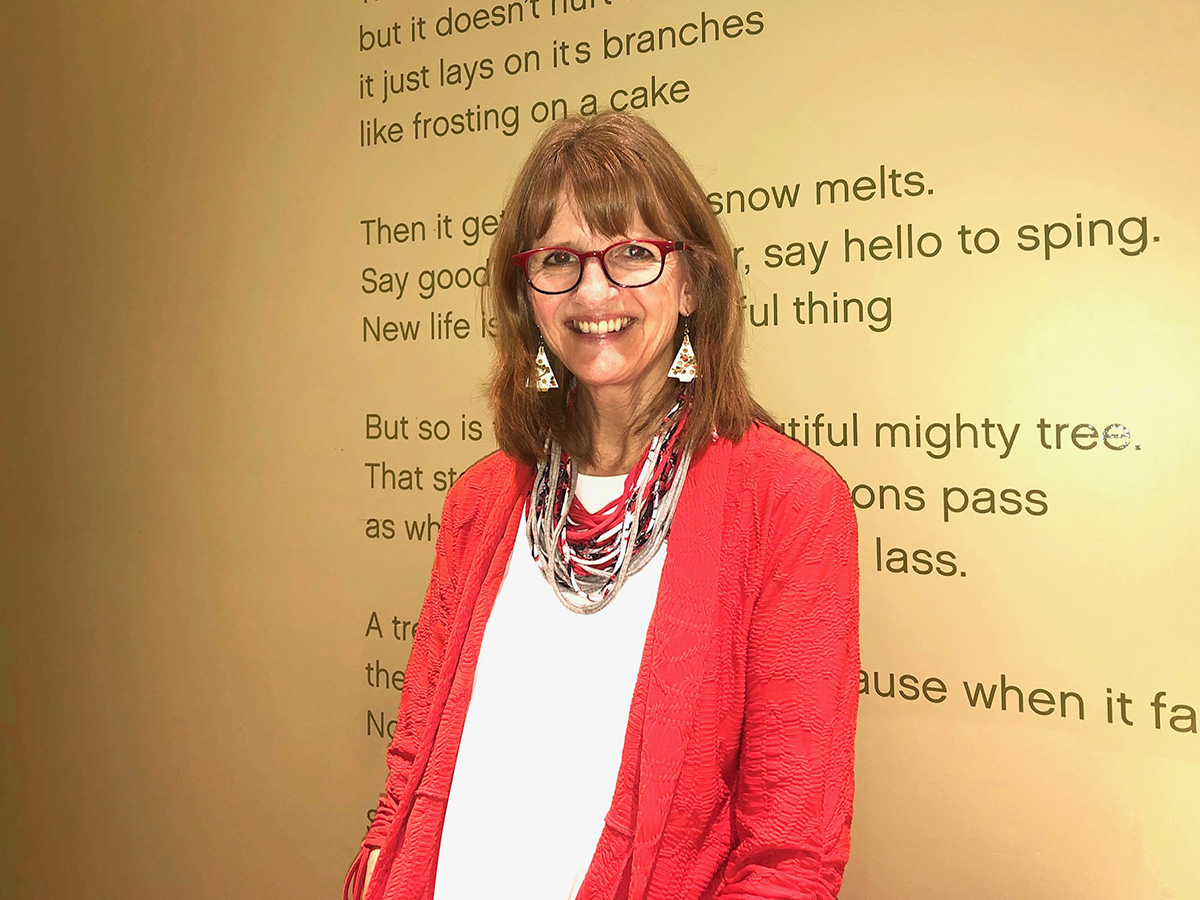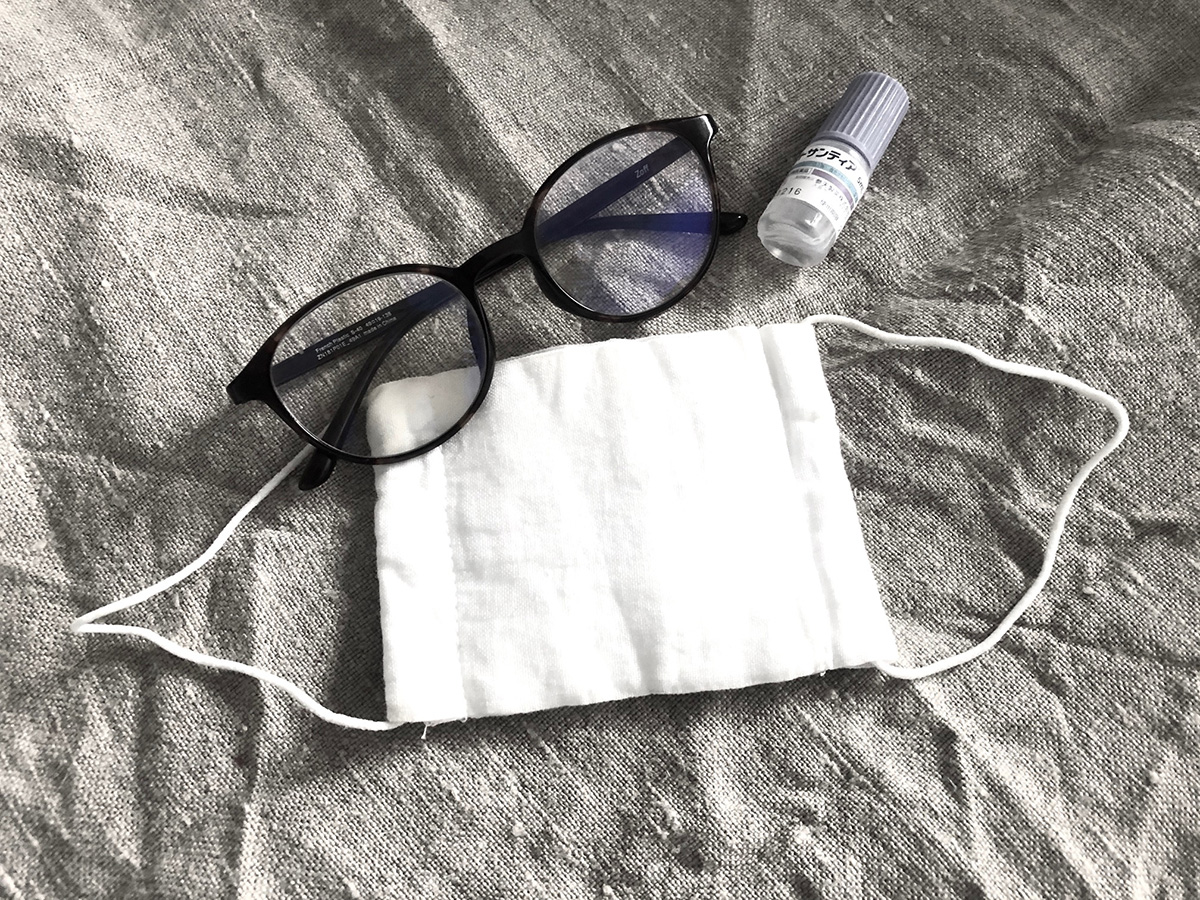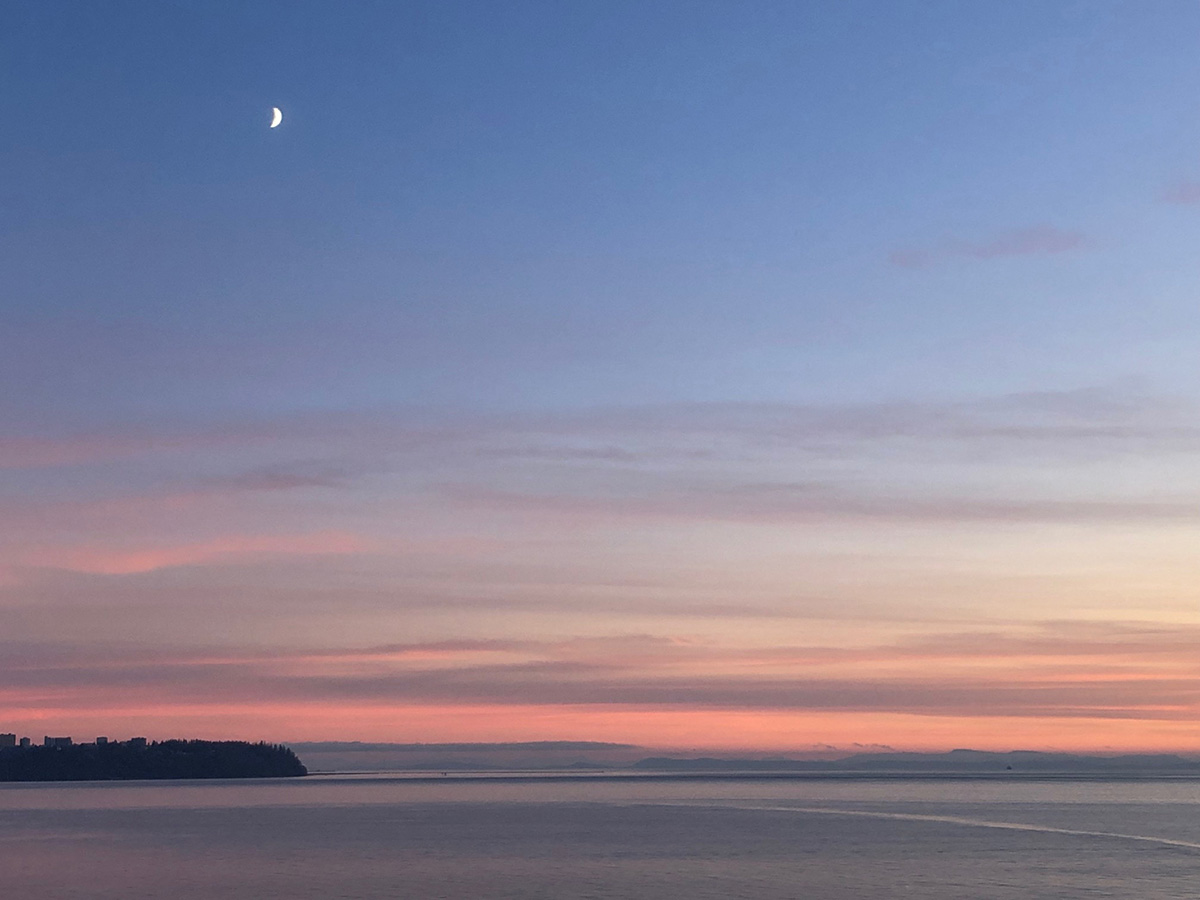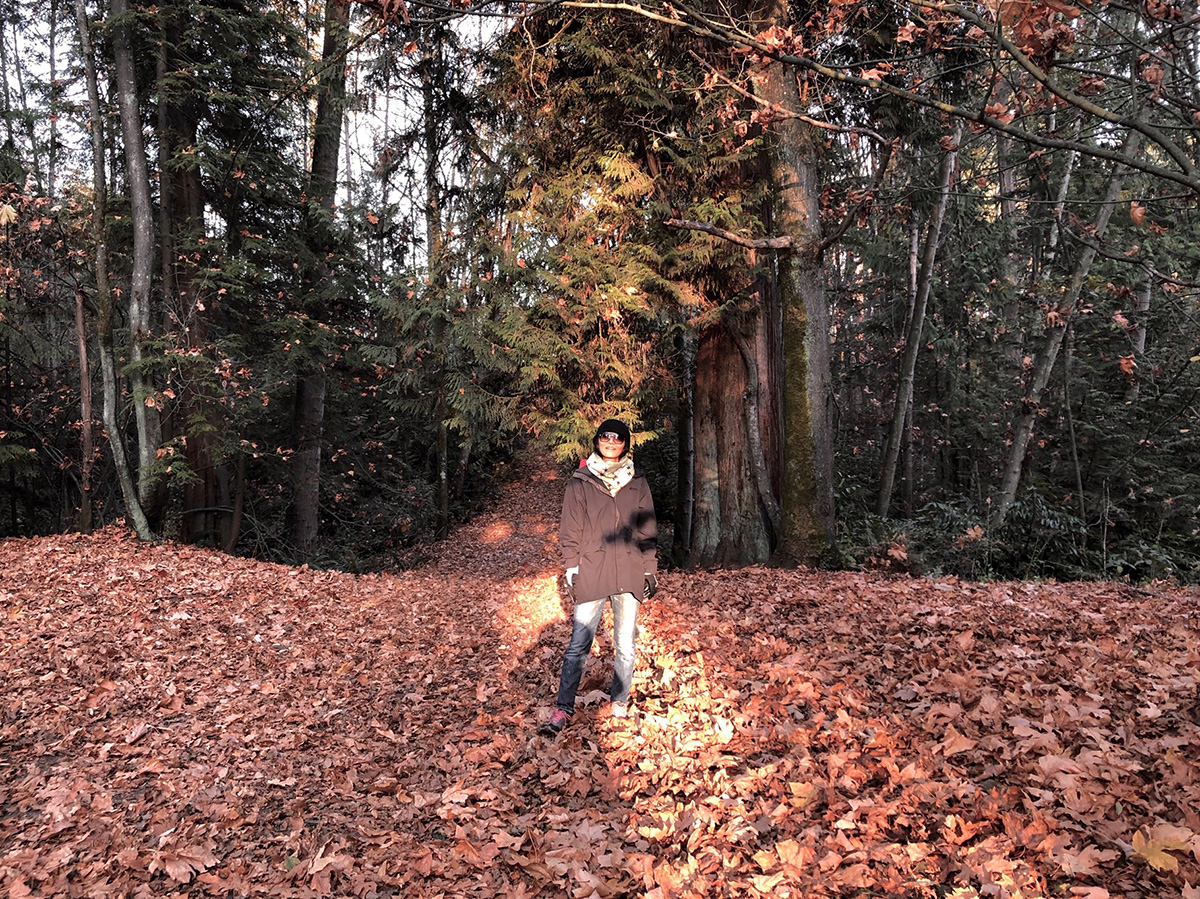「笑顔を取り戻したい」、「瞬きをしたい」。この2つの願いはRHS発症1ヶ月後にカナダで出会った顔面麻痺専門医、Susan Rankinさんから「何を一番に治したいですか?」と問われた時の私の答えでした。患者の数だけ症状があるように、私の症状も色々でした。顔の右側が完全麻痺していたので、笑顔を作ることはもちろん、瞬きや涙も出ません。右の口角は完全に閉まらず薄く開いている状態で、口に水を含むとプ~ッと漏れてしまい、うがいも困難でした。「パピプペポ」が上手く言えず、食事中も右顎の筋力がないのでモコモコと食べ物が口に溜まってしまう現象がありました。耳はボワボワと詰まった様な感覚かと思えば、聴覚が過敏になり小さな音でも爆音のごとく鳴り響き、耳栓なしでは外を歩けませんでした。麻痺は決して無感覚ではく、強ばりやつっ張り、痛みや強い違和感を伴うのです。右側全体おたふく風邪の様に腫れている感覚もあり、顔面打撲をした様な痛みが伴いました。細かい症状を挙げると尽きないですが、様々な困難な症状の中でも「笑顔」と「瞬き」が出来なかった事が私には一番辛かったのです。

「笑顔」は幸せや楽しい感情を表現するだけでなく、笑いそのものが自分の心を明るくしてくれます。思いっきり笑えない事がこんなにも心理的に重く辛い事だとRHSを通じて痛感しました。綺麗に笑えない自分の顔を鏡で見ては落ち込んだ日も多々ありました。もう2度と同じ笑顔を作れないのではと一瞬不安がよぎった時に、笑いある人生を過ごして来たとしても、もっともっと笑っておけば良かったと後悔しました。ムッとしている時間があったなら、何てもったいない事をしてしまったのだろうと、そんな気持ちになりました。行き交う人との何気ない笑顔の交わしも出来ない自分が、常に機嫌が悪い人に見られる様な気がして、マスクで口元を隠していたのもこの時期でした。
また、「瞬き」は無意識で最も力を要さない行為ですが、一般の成人で1分間に10~30回するそうです。これが出来なくなると、大きな大きな障害となります。眼球が常に乾くので30分に1回は目薬を差し、ほんの小さなホコリの侵入も防げません。風や紫外線に刺激され、PCや携帯のブルーライトにも疲労し傷つきやすくなります。右目を使わずに保護してみようと眼帯をトライしましたが、逆にバランス感覚が鈍りとても気持ち悪かったです。そして、健康な目は普通に使ってないと視力低下にも影響が出るらしく、室内ではダテめがね、外ではサングラスと言う保護スタイルが私の定番になりました。就寝時はテープで強制的に閉じる必要がありました。

普段の何気ない表情や動きで、体や心は守られ、バランスの良い状態に保たれていることに感謝する機会をRHSに与えられました。笑ったり、泣いたり、怒ったり、喋ったり、と日々の当たり前の営みは、自分の内側と外側は正に一心同体であると言う事実をとても分かりやすく実感させてくれました。
Susanさんが教えてくれた最初のリハビリの中で、「鏡を見ない」で表情を作るレッスンがありました。視覚に頼るよりも、頭の中でその表情に伴う「心情」を思い浮かべながら練習した方が、動き易くなるのだそうです。脳と体は必ずその時の心情と動作を覚えているから、そこへと自分自身をリンクしてあげるのです。心が笑えば顔は笑う。たとえ笑う機能が奪われても、その内なる笑みはその人が放つオーラとして滲み出てくるもの。

1ヶ月と11日が経った6月1日の土曜日。ふとした会話で笑う感情を放ったその時、右の口角と頬が同時に上に小さく動いた瞬間の感動を今でも忘れません。私の笑顔のかけらが少しづつ元に戻って来た瞬間でした。内側と外側のビューティーは固く結ばれ繋がっている。それを改めて確信した日でもありました。
注)これはRHSに対する専門的医療知識を提供するものではありせん。あくまでも個人的な経験を通して感じた事や学んだ事として参考にして頂ければ幸いです。

[ IN ENGLISH]
I want to have my smile back” and “I want to blink”. Those were my top wishes after the onset of RHS. A Vancouver facial specialist, Susan Rankin, asked me “what condition would you like to improve the most?” after dealing with RHS on my own in the first month. Everyone can experience different conditions and mine was full of variety. The right side of my face could neither smile nor blink, let alone shed a tear. The right corner of my lips was always slightly open so it was hard to keep fluids in. It was difficult to make out “P” sounds and I always had to push food out from my right cheek. My right ear felt like it was underwater but still very sensitive to noise. Any small sound felt ten times louder and caused thundering pain. I had to wear an earplug whenever I was outside. I thought paralysis meant that it makes that area completely senseless or numb. Surprisingly for me, my paralysis felt stiff and tight with chronic pain and discomfort as if my face was swollen from a bad cold or bruised very badly. Losing the ability to “smile” and “blink” was the hardest for me to handle.
A “smile” is an expression of happiness and pleasure. The simple act of smiling, itself, can light up your mind. RHS has taught me that my face without a smile feels lonely, stressful and miserable. There were many days that I was disappointed to see “no smile” or “imperfect smile” from my reflection in the mirror. I was beginning to wonder if I would ever get my smile back. If I had known that there would be a day that I wouldn’t be able to smile my life, I would have smiled and laughed much more than I ever did. I would gladly exchange any of my moody faces I had with smiles now. Without a smile, I became very self conscious even when I tried to exchange casual greetings with people I met on the street. I was very worried that everyone perceived me as a grumpy individual. Those were the times that I started to cover my mouth with a mask to hide my insecurities.
A “blink” is something so effortless and unconscious that I never really paid attention to it. An average adult blinks around 10 to 30 times per minute. That is a lot of blinks in a day to not be aware of! Having this small and precious blinking ability taken away from from me caused a lot of havoc. My right eye felt dry all the time, so I lived off of a preservative-free eye drop every 30 mins. It was vulnerable to lots of things like a small dust in the air, wind and sunlight. I tried wearing an eye patch to have full protection from all elements, but it worked the opposite way. I encountered a lot of discomfort and loss of balance by covering my “bad eye”. That was when I learned that stopping the normal function of my eye can make it weaker. I eventually found a comfortable style of eye protection by wearing regular glasses indoors and sunglasses when I was outdoors. I taped my eyelid before I went to bed too.
RHS gave me the opportunity to appreciate the small expressions and facial movements that had been keeping my mind and body in balance every single day. My daily smiling, crying, talking and even getting angry were all so natural and so normal to realize that they actually symbolized my mind and body working as one. During my first rehabilitation session, Susan taught me an important lesson on how to recover facial movements without looking at the mirror. She guided me to let my brain and body to think and bring in emotions while doing the facial movement exercise. I was linking myself to the time when I felt happy, angry, sad and excited, because my face remembers those movement linked to my emotions. When my mind smiles, my face smiles. I felt that even if my face couldn’t fully smile, my face emitted the smiling aura from within me.
Saturday June 1st was one month and eleven days after my RHS onset. I will never forget that day. It was the day that I clearly remember with overwhelming joy when the right corner of my lips and cheek spontaneously pushed up together. It was a small but proud improvement of my smile while I was engaged in some happy conversation. That was the moment that my smile came back to me again. That was the moment that I could not be more convinced that the inner and outer beauty are connected together with an immensely strong bond.
NOTE: This is not a professional recommendation on how to deal with RHS, rather it is my personal journey through this rare condition. Everyone can have different experience and I am happy to share mine.
